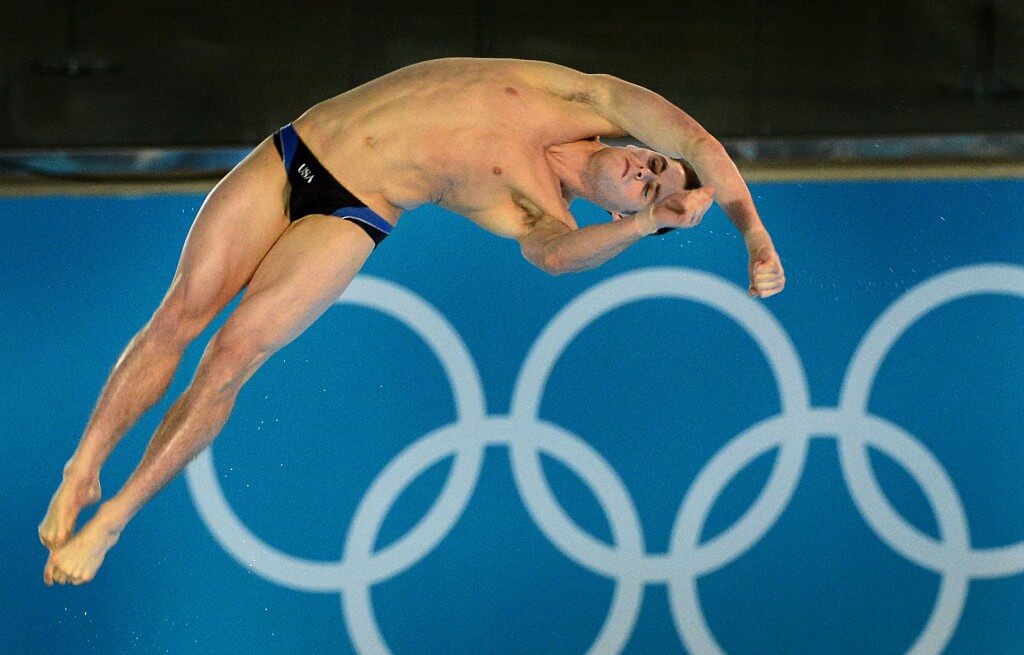Pressure: Who’s the Boss?

By Danielle Repper, Swimming World College Intern
Has anyone ever had this thought– “I’ve practiced this dive hundreds of times, and know I can nail it! So why do I completely blow it when it counts?”
Performing under pressure is one of the most difficult tasks any athlete will face. Many will thrive under pressure. However, many too easily succumb to it. You can either let the pressure of a competition control you, or you can learn to control it.
Each athlete handles the pressure and stress of competitions differently, however those who succeed all have one thing in common; control! When you control the effects of pressure, you will be able to hone in on your skills, increase your motivation, and enhance your concentration.
Steele Johnson, sophomore diver for Purdue University, shared, “when I go into a competition, I go in as relaxed as possible. I find something to distract me in between dives, because if I spend my time worrying about my past dives and future dives, I will be too stressed to dive well. It is all about finding a way to make the corrections you need to make, and also finding new ways to just enjoy the diving.”
It is important to realize that pressure is a figment of our imagination. When this idea was first pointed out to me, I denied it, as I’m sure many others have. It didn’t seem possible that something imaginary could cause very real goosebumps, make me sweat, or give me the jitters. So why does this illusion of pressure feel so real? We athletes put the pressure on ourselves. We create it because we want to perform to the best of our ability. Once you realize you are the one creating the pressure, you will recognize you are capable of controlling it.
“I just never found adding pressure made me do better,” said Wally Layland, sophomore diver for the University of Miami.
Don’t focus on the outcome and don’t dwell on the things you can’t control. By focusing on the desired end result, you only add more pressure. If you fixate on what you need to do, the outcome will come. Stay in the moment and concentrate on one dive at time.
Johnson added, “When going into a competition it is extremely important to have the right mindset. Everyone sets big goals such as wanting to qualify for the Olympics, win nationals, or win a smaller meet, but what sets athletes apart are the smaller goals that they practice every day, and in turn try to achieve during a competition. If I go into a competition thinking about winning a gold medal, I will be thinking about something that is out of my control and in turn not do as well. If I go into a competition with the mindset of wanting to achieve specific goals for each dive, I will be focusing on things that I can control and in turn will be happier and will perform better.”
Practice as if you are in a competition. You must get into this mindset. Make every jump, every dive, and every prep count. Make your practice as similar to a competition as you can. Ask your coach or teammates to announce your dives, ask them to give you a score after each dive, and ask to organize a mock meet with the team. The more you practice the mindset of being in a competition, the less intimidating a real competition will be.
Layland emphasized, “I do believe that athletes put too much pressure on themselves, which is why they usually do better in practice. I do believe having ‘mock meets’ in practice, because it is important to practice like you’re competing.”
My coach taught our team the importance of being proactive and accountable for our actions in and out of the pool. So ask yourself, is pressure the boss of you, or are you the boss of pressure? You decide! Control the controllable, take action, and stay in the moment.





fighting
Diving is performance- rather than tactic-based execution of a skill. Team sports require observation and response to their environment. Individual sports require the opposite; rather, focus on practiced skills. Great article.
Thank you!